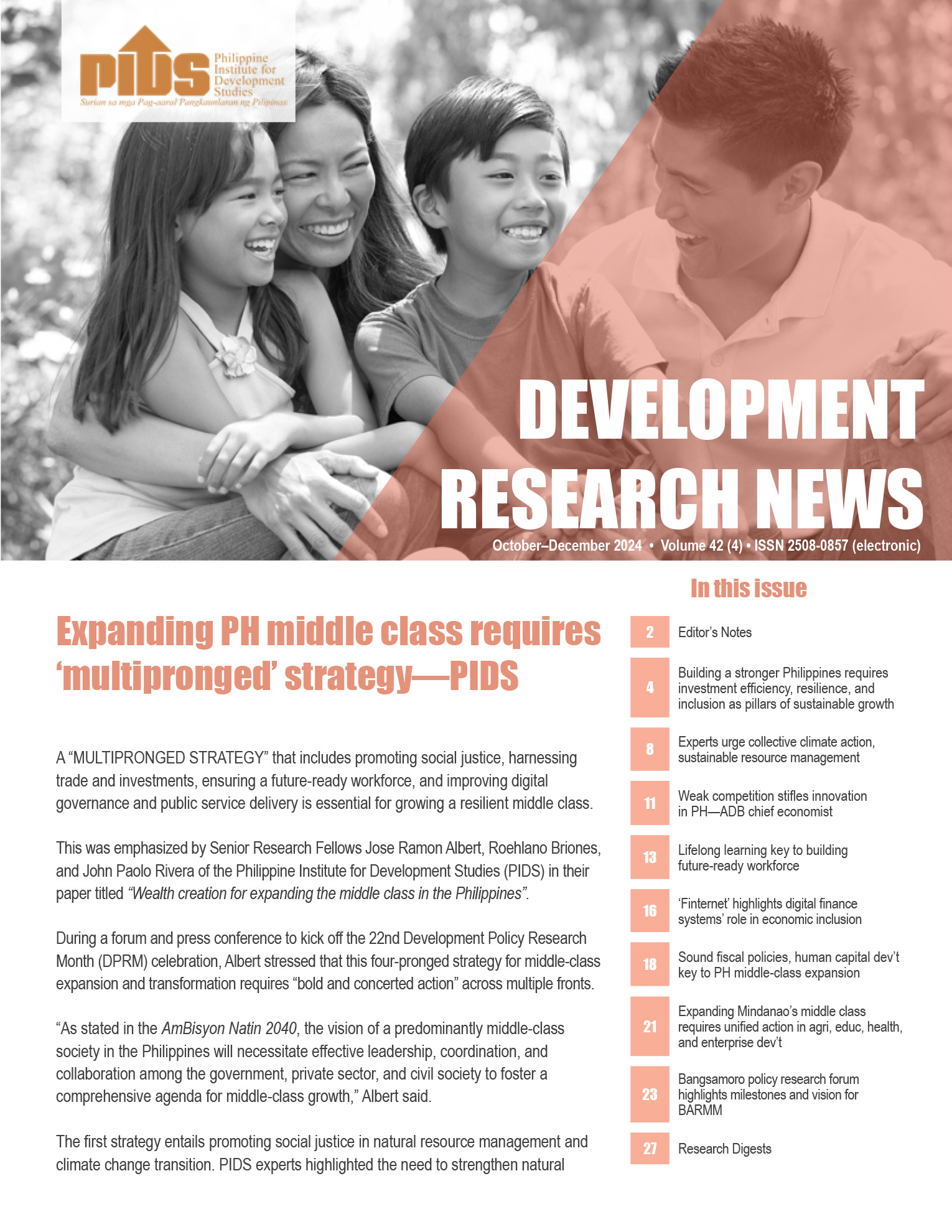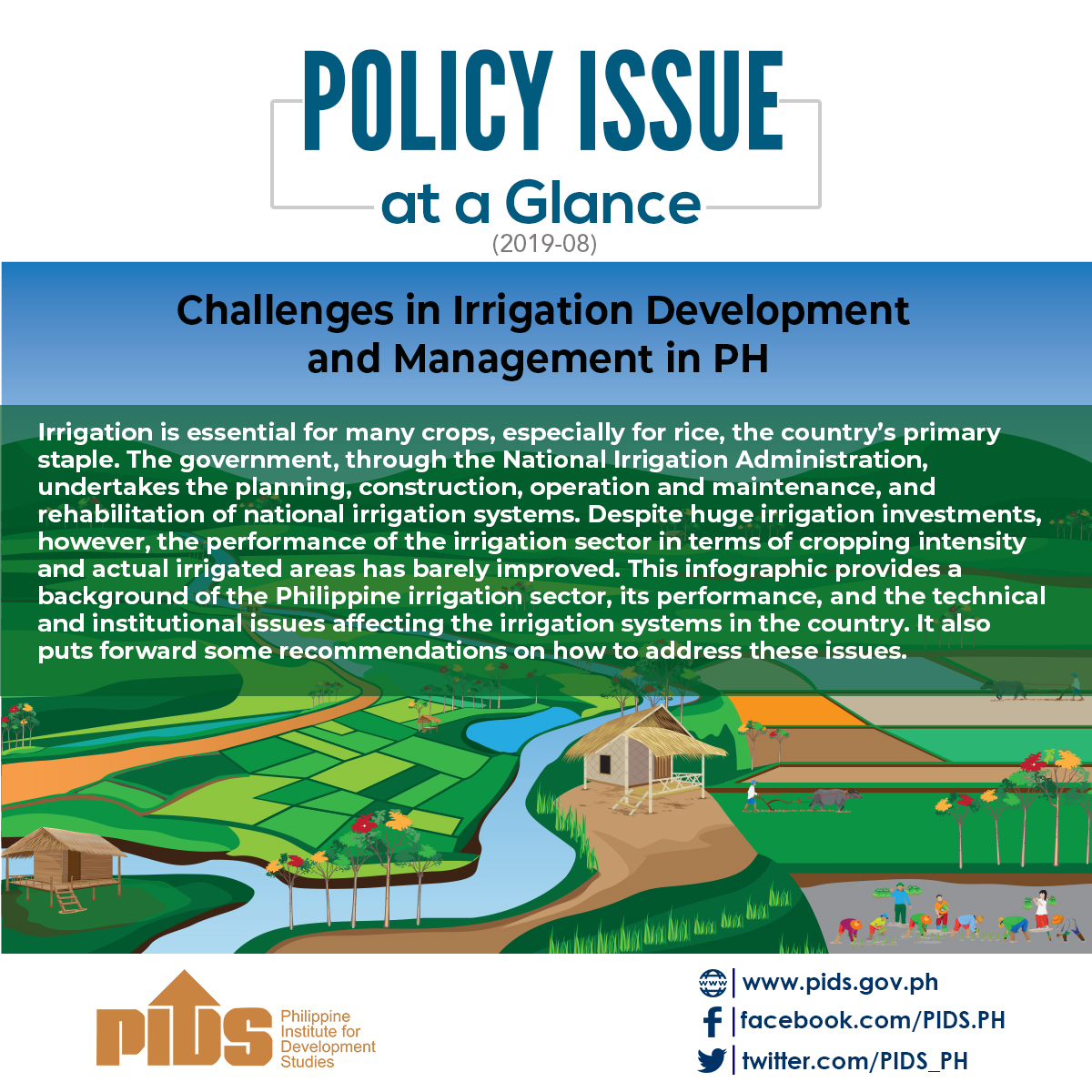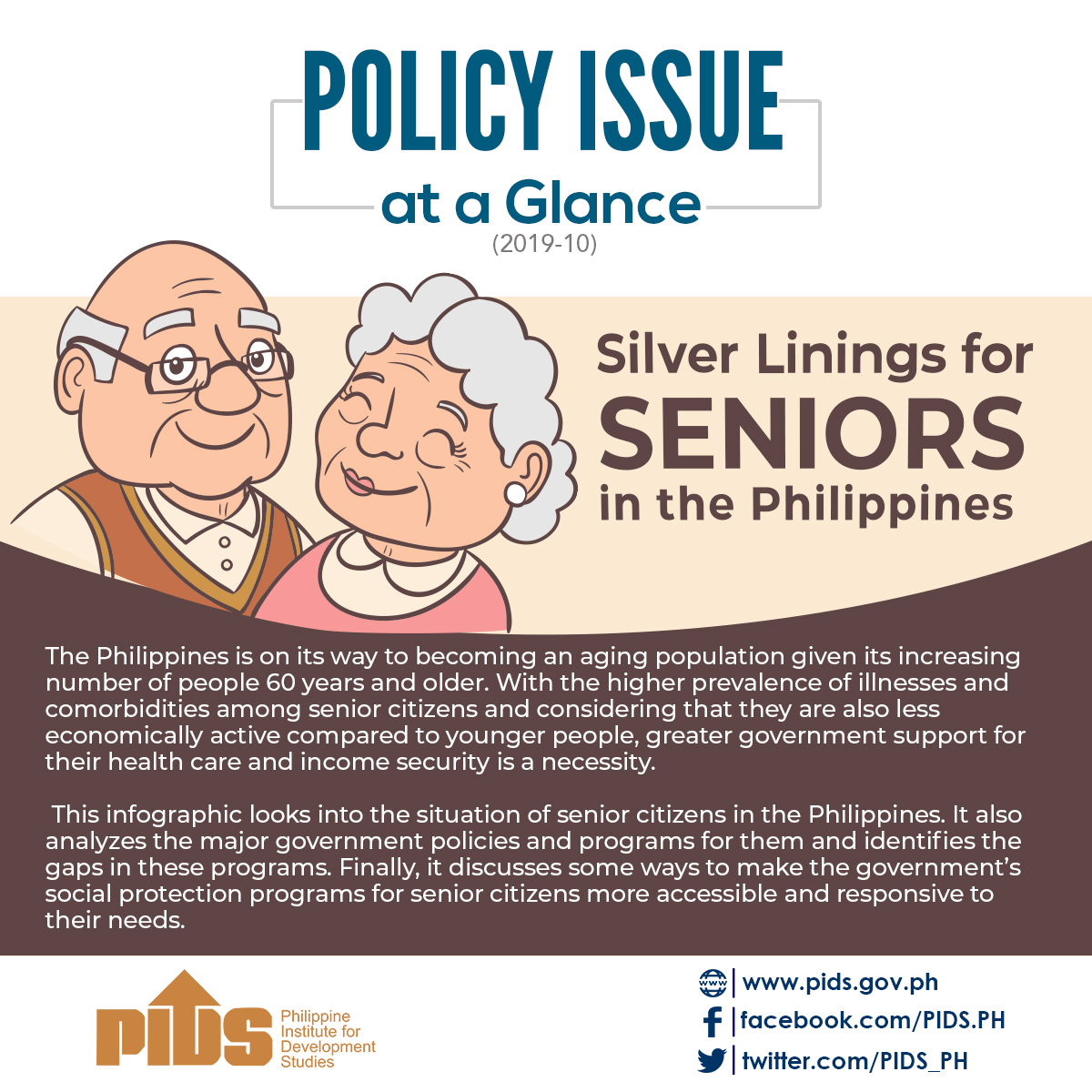Despite climbing to 73rd out of 127 countries in the 2017 Global Innovation Index from 74th last year, the Philippines still needs to spend more in research and development (R&D) to truly boost innovation in the country, the Philippine Institute for Development Studies (PIDS) said.
At the recent Measuring and Examining Innovation in Philippine Business and Industry seminar, PIDS Senior Research Fellow Jose Ramon Albert attributed the country’s “low performance” in the index to the low public expenditures on R&D, the insufficient number of research scientists and engineers, inadequate infrastructure, restrictive research regulations, and the weak ties of firms involved in innovation activities to the government and academe.
While the Philippines has had a slight increase in R&D expenditure as a percentage of gross domestic product (GDP) in recent years, it spends only less than a fifth of 1 percent of GDP,” Albert said.
Citing data from the United Nations Educational, Scientific and Cultural Organization (Unesco), the PIDS fellow said developing countries should spend 1 percent of their GDP on R&D.
The Philippine’s spending level is lower than that of Singapore (2.4 percent), Malaysia (1.3 percent), Thailand (0.5 percent) and Vietnam (0.2 percent).
Albert said the fact so little is spent on R&D shows how science, technology and innovation have been given little priority.
According to him, one way to increase innovation is to invest in human capital.
R&D spending will have little impact without a vast pool of well-trained engineers and scientists, and human resources. For instance, China’s progress can be partly attributed to its decision to open up to innovation and invest in human capital,” Albert said.
He recommended extending financial assistance and training support to micro, small and medium enterprises (MSMEs) to strengthen ties between knowledge producers and users, and consequently, the country’s innovation climate.
Establishments, especially large firms, need to be stimulated to cooperate for innovation, rather than being averse to networking with their competitors. Improving networking and promoting linkages and collaboration among the government, industry associations, and universities and research institutions must be pursued vigorously and should be given far better budgets than what is currently available,” Albert said.
He also proposed that the government should look into regulatory frameworks, as regulators tend to focus more on implementing regulations, which may not be always applicable to changing environments, than prioritizing public welfare.
One can only look at the current regulatory scrutiny of the LTFRB [Land Transportation Franchising and Regulatory Board] over Grab and Uber as an example. Regulators and legislators have to seriously examine the extent to which regulations are becoming barriers to innovation and encouraging monopolistic positions in a market,” Albert said.
At the recent Measuring and Examining Innovation in Philippine Business and Industry seminar, PIDS Senior Research Fellow Jose Ramon Albert attributed the country’s “low performance” in the index to the low public expenditures on R&D, the insufficient number of research scientists and engineers, inadequate infrastructure, restrictive research regulations, and the weak ties of firms involved in innovation activities to the government and academe.
While the Philippines has had a slight increase in R&D expenditure as a percentage of gross domestic product (GDP) in recent years, it spends only less than a fifth of 1 percent of GDP,” Albert said.
Citing data from the United Nations Educational, Scientific and Cultural Organization (Unesco), the PIDS fellow said developing countries should spend 1 percent of their GDP on R&D.
The Philippine’s spending level is lower than that of Singapore (2.4 percent), Malaysia (1.3 percent), Thailand (0.5 percent) and Vietnam (0.2 percent).
Albert said the fact so little is spent on R&D shows how science, technology and innovation have been given little priority.
According to him, one way to increase innovation is to invest in human capital.
R&D spending will have little impact without a vast pool of well-trained engineers and scientists, and human resources. For instance, China’s progress can be partly attributed to its decision to open up to innovation and invest in human capital,” Albert said.
He recommended extending financial assistance and training support to micro, small and medium enterprises (MSMEs) to strengthen ties between knowledge producers and users, and consequently, the country’s innovation climate.
Establishments, especially large firms, need to be stimulated to cooperate for innovation, rather than being averse to networking with their competitors. Improving networking and promoting linkages and collaboration among the government, industry associations, and universities and research institutions must be pursued vigorously and should be given far better budgets than what is currently available,” Albert said.
He also proposed that the government should look into regulatory frameworks, as regulators tend to focus more on implementing regulations, which may not be always applicable to changing environments, than prioritizing public welfare.
One can only look at the current regulatory scrutiny of the LTFRB [Land Transportation Franchising and Regulatory Board] over Grab and Uber as an example. Regulators and legislators have to seriously examine the extent to which regulations are becoming barriers to innovation and encouraging monopolistic positions in a market,” Albert said.












